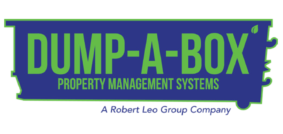You’ve prepared a sumptuous meal, enjoyed it with family, cleaned the dishes, and tossed a few pieces of trash in the bin. EPA estimates that a person generates 4.9lbs of garbage daily—that’s a lot of waste for our planet to handle. So where does your Columbus trash go? The government and nonprofits take measures to ensure a responsible way to dispose of waste.
There are excellent solutions for all garbage, whether regular household trash, commercial waste, construction, demolition debris, or clean-out garbage. If you have tons of trash in Columbus, we recommend renting a roll-off dumpster. We have the dumpster size you need for construction, remodeling, and house junk removal projects.
Where Does Your Columbus Trash Go?
There are four preferable ways to eliminate trash in Columbus. Depending on the material type, your garbage could end up in a recycling, composting, landfilling, or incineration facility.
Recycling Facilities
Recycling is one of the most excellent ways to divert trash from landfills, and it helps create raw materials from what would otherwise be trash. Once the garbage leaves your house, it ends up in a sorting facility that helps separate clean material and sends it for recycling. The recycling facility in Columbus processes materials like plastics, aluminum, glass, metals, paper, and cardboard into new raw materials.
Paper, for instance, can create new paper products! And this means it will reduce the need to cut down more trees to make paper. Recyclers can turn plastic into new products, polyester fibers, and fabric.
C&D (construction and demolition waste) can also be recycled. Concrete and asphalt can make aggregates or new concrete and asphalt materials. Some of the construction and demolition trash can be up-cycled by landscapers.
If your trash contains recyclable materials, you can be sure it will end up recycling, which plays a massive role in the economy and the environment.
Landfills
A landfill is another final destination for non-recyclable and toxic trash. These are designated places away from environmentally-sensitive areas where your non-recyclable and hazardous waste ends up. You probably imagine a hollow pit where you throw all sorts of trash, no? A landfill is designed using cutting-edge tech and engineering to keep contaminants from polluting the environment.
Landfills help manage millions of tons of waste, ensuring that the trash disintegrates completely without polluting the environment. Typical residential trash that can’t fit the composting, recycling, or incineration facilities go to Municipal Solid Waste Landfills. Other landfill types accommodate unique waste types—for instance, hazardous waste and C&D debris landfills.
Composting Facilities
What happens to all the food scraps and the green waste? Composting is an excellent destination for all your organic waste. The composting facility uses compost to break down organic matter into organic fertilizer. Composts utilize bacteria, fungi, and worms, to create a conducive environment for natural decomposition, making “black gold.” The facilities have significant composts to handle enormous volumes of organic waste.
Composting is like recycling; it helps create a valuable by-product to enrich the soil while preserving natural resources. Furthermore, it helps cut methane gas emissions at landfills as it reduces the waste going to the dump.
Incinerator
Your Columbus trash can also go into the incinerators—a furnace for burning hazardous waste. It is an efficient waste management option that helps reduce municipal solid waste that would end at landfills. The waste goes through high-level combustion, reducing trash to ash. Modern incinerators are designed to reduce the emission of toxic gases. The best part is that incineration can help generate heat and power.
An Incinerator can reduce waste by a considerable percentage, making it one of the excellent waste management solutions.
Dump A Box is a leader in waste management, handling waste removal and disposal in Columbus.

